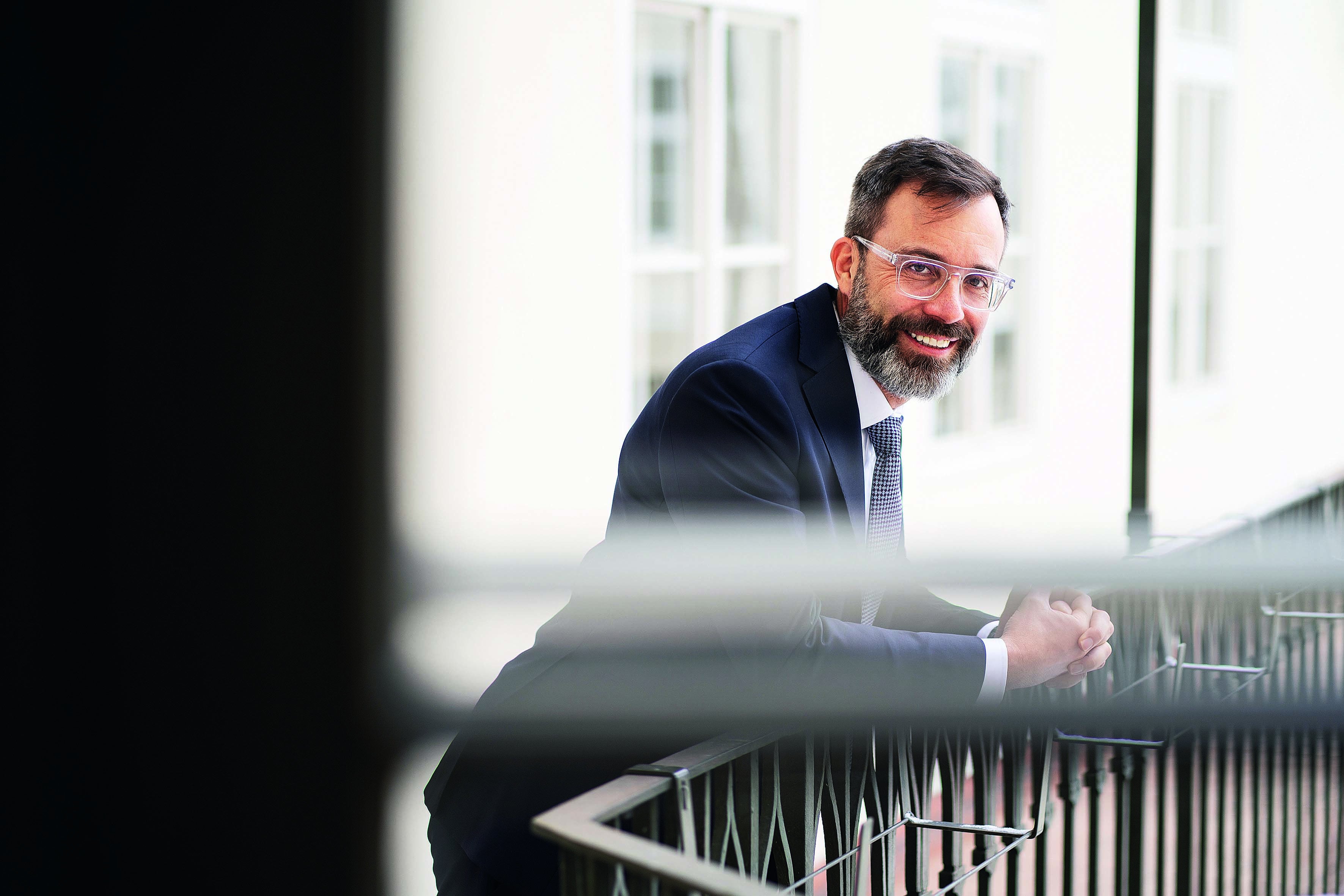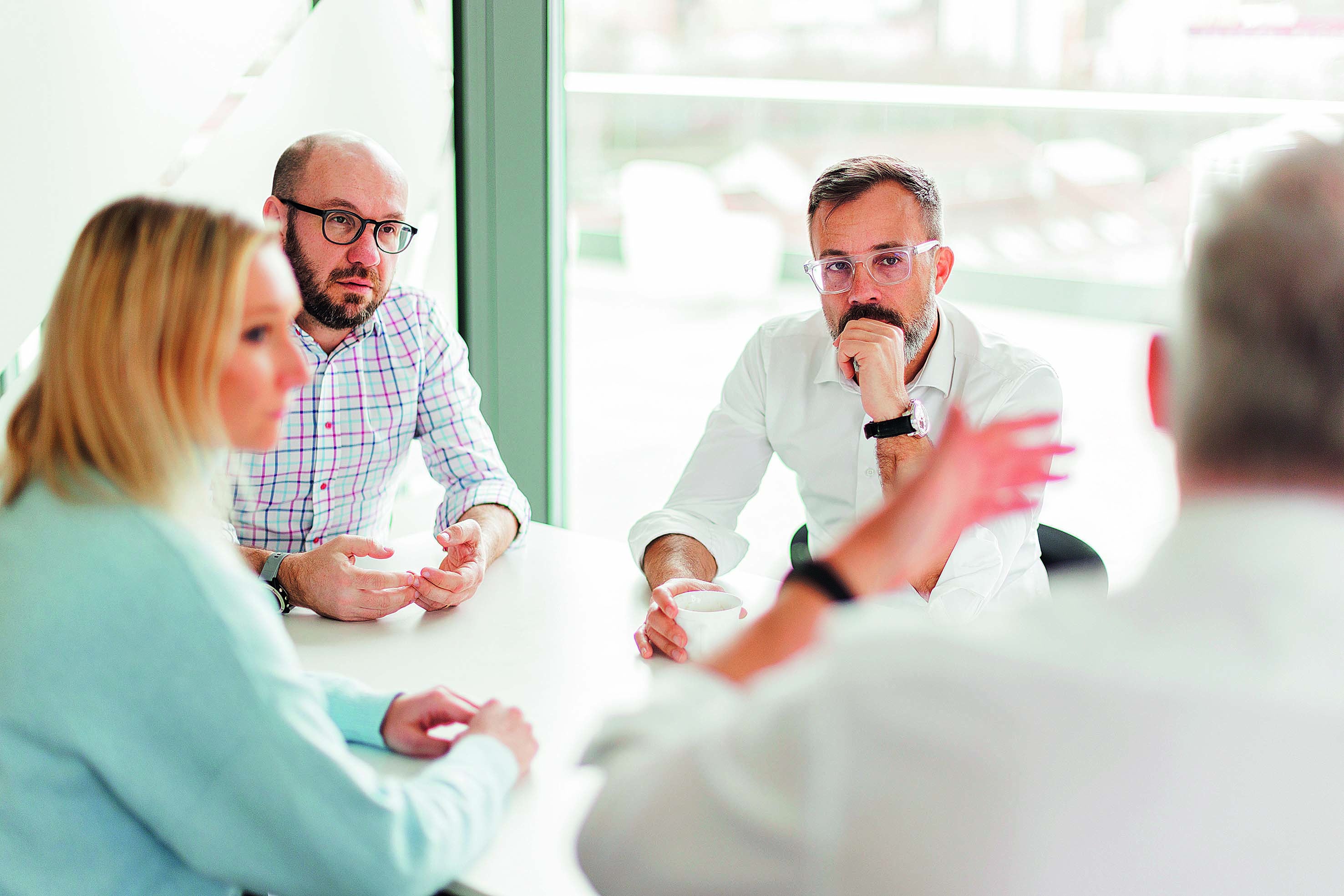The winter that many feared due to high energy prices and insufficient resources is over, and it ended much better than some doomsday scenarios predicted. The chairman of the Pražská Plynárenská board Martin Pacovský discusses how it went and what the prospects are for the coming one.
You were rather optimistic on Twitter regarding your recent visit to the United States where you went together with representatives of other companies and Minister of Industry and Trade Síkela. Among other things, you mentioned negotiations regarding LNG import contracts. Did they yield any specifics?
One of the reasons why I went there was to find out whether we, as a relatively small company from both a European and a worldwide perspective, have the chance to negotiate a direct contract. And it turned out that we do, that even for companies of our size it makes sense to talk with American LNG producers. At the same time, it would be ideal for us to lump our volume together with other companies of comparable size. So that was good news for me. I also found out that we're not the first energy company of our size from Europe that came to visit. Even the subsequent talks and negotiations with the Ministry of Industry and Trade were fruitful, so I was happy.
Wouldn't it be better if the state did the negotiating instead of a single energy company?
The state usually doesn't do the buying, it prefers to appoint somebody on its behalf, such as in the case of ČEZ and the procurement of gas terminal capacities. I feel that we could perhaps talk to the state about being charged with gas purchases. We'll see. This is usually done by state-owned companies in other countries but there are private ones as well. It's all about coming to an agreement with the Ministry and seeing whether it would be feasible at all.
Would that happen ahead of the coming winter?
Definitely not. The minimum period is one year, and there is now a two-year window of relatively good conditions for negotiations. So, we'd have to agree to get started around about 2026. It needs to be a contract for at least fifteen years, and putting together an agreement for such a long period is no small feat. We've never dealt with such a contract, and I would hazard a guess that nobody has here in Czechia.
When we last spoke, which was in September last year, you estimated how the winter would go and that we would ultimately have gas, but its price would be uncertain. Winter is over and we survived more or less unscathed...
That was in large part due to relatively warm weather as well as a drop in consumption – people really started cutting back. So yes, things went well in the end. We're not exactly at a point where I could come out and say, "It's over!" We still need to fill our reservoirs for the next winter even though it seems that we might have something left over from this one. But I feel that unless something entirely unexpected happens, like a freighter blocking a canal or some such, we should keep heading down the course we've set. On the other hand, China is a big unknown in this regard because it is in direct competition with Europe over LNG supplies. If China's economy kicks back into gear, LNG prices might rise. But it certainly won't be a case of there just not being any gas. There will be plenty of gas; its price will once again be the question mark, though. Everything is looking up so far. Let's hope it stays that way.
We could say, then, that we managed to deal with the Russian cutoffs better than some predicted?
Better than anyone expected. The Russians must be rather disappointed by that. What's more, the way that Europe handled the Nord Stream sabotage was hailed as a success even in the US. They told us that they never would have expected Europe to pull itself up by the bootstraps like that and beat the crisis. Germany helped a lot – besides sinking a lot of money into it, they were able to quickly build several LNG terminals. A clear example of things working the way they were supposed to in times of crisis and under pressure, in my opinion.
And of Europe being able to reach an agreement quickly and efficiently, which I wouldn't have expected...
I don't think anybody would have. I feel that it really is deserving of praise, just how well things went.
Stepping away from gas, what is the future? Biomethane, hydrogen? In fact, I hear that you're planning to build hydrogen fueling stations in Prague...
That we are, we've got three places in mind. We've applied for government funding, so we'll see whether we get it because there's no point getting into all that without it. Hydrogen is kind of similar to the case of Mrs. Columbo – everybody's talking about it but nobody's seen it yet. It's currently in a sort of experimental phase. Nobody has come up with a real business case to base it all on so far. We actually prefer biomethane. Our plan is to invest extensively in biogas plants; we feel that sourcing it from biogas plants around Prague, such as those processing municipal waste, would be ideal. We believe that CNG, or rather bio CNG, is the way to go for at least the foreseeable future. We're in talks with Prague Public Transit and Prague Utilities about them purchasing some additional buses or garbage trucks fueled by bio CNG. Simply put, we're focusing on something that we believe to have immense ecological potential and that comes with a reasonable price tag to boot. And that's biomethane. Czechia could potentially cover up to ten percent of its consumption from just this source.
Are you also working on solar power plants?
We started building one just last year with our own resources. We're even working on one of the largest ones in Prague at the moment. We are trying to get into new things.
How much lead time is needed to plan the gas – biomethane – solar power – hydrogen ratio? Should one of these sources charge ahead, demand for regular gas might flounder... That's something you have to calculate for, right?
The change won't be as fast as all that, and we still need natural gas. Every solar power plant needs to be backed up by a regular one. It's becoming obvious that the consumption of natural gas is bound to keep growing until at least 2040, so I don't feel that we'll be dealing with lower numbers long-term. It's ultimately the ideal fuel for energy production, so households are likely to cut back on natural gas, but its importance in the heating and power production industries will probably only grow. And that's where we're trying to build new opportunities.
You mentioned households, was it evident that they were cutting back in the winter?
Consumption went down roughly 15 to 19 percent in Prague. People cut back due to high prices; we're already seeing demand pick up again since the new year when everybody breathed a bit of a collective sigh of relief. And as prices go down, household consumption is bound to return to the mean.
CV
Martin Pacovský (49) is the chairman of the Pražská Plynárenská Board of Directors.
He graduated from the Prague University of Economics and Business and earned his MBA from the Rochester Institute of Technology.
He worked as a risk manager for the Inven Capital VC fund, specializing in clean technology.
He has been the chairman of the Pražská Plynárenská Board of Directors since January 2021. It is not his first time in an energy company, he worked for CEZ Group for many years.
Pacovský is the co-owner of two microbreweries located in Jarošov and Znojmo.
He is married and has two children.

